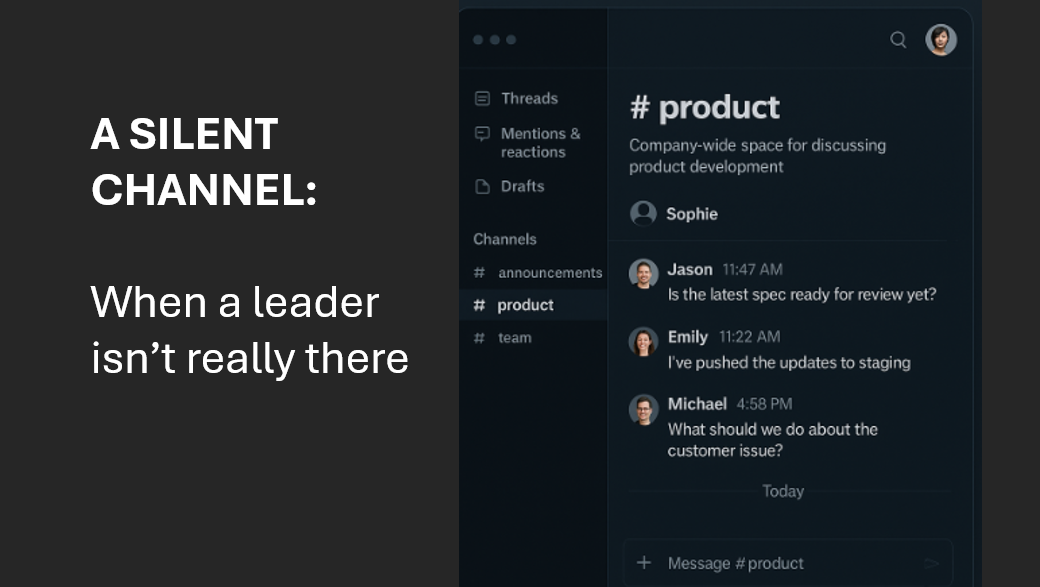The workplace is rapidly evolving and traditional performance management methods are increasingly being challenged for potentially being outdated and ineffective.
In this article, we highlight a revolutionary approach championed by Avril Somerville, Talent Development Specialist, that transforms performance management from a reactive process to a proactive performance enhancement system that is centred around self-actualisation.
The Problem with Traditional Performance Management
Traditional performance management typically involves periodic reviews where managers assess employee performance against predetermined metrics. This approach can be reactive rather than proactive, create anxiety and negative associations, and often focus on skills rather than attitude and aptitude. It can fail to align organisational needs with individual aspirations and can lead to awkward, difficult conversations and potential conflicts
The Self-Actualisation Mapping (SAM) Process
The alternative approach Avril proposes centres around a Self-Actualisation Mapping (SAM) process. This innovative method flips performance management on its head, focusing on enhancing performance proactively, rather than managing it reactively.
Self-actualisation in this context refers to helping employees realise their full potential in a way that encompasses their whole life, not just their job functions. As Avril explains, “It’s about the self, the person, the individual that is actualising their vision and goals, rather than being told by the business that this is where you’re going or what you could do.”
This approach recognises that work is part of a broader life journey and that understanding an employee’s deeper motivations and ambitions creates pathways for mutual growth.
How the SAM Process Works
The SAM process creates a personalised map for each employee, regardless of their level or what stage of their career they are at. This map:
· Charts a growth journey through the business with clear succession planning
· Focuses on what drives the individual, not just as an employee but as a person
· Considers the employee’s whole life ambitions beyond their career goals
· Emphasises attitude and aptitude over specific skills
· Provides complementary development programmes aligned with personal goals
· Is owned by the employee, not the organisation
This process shifts the fundamental questions from “What do you want from your work?” to “What are your ambitions in life?” This broader perspective helps to align someone’s career development with their personal fulfilment.
Building Intrinsic Motivation Through Ongoing Conversations
A critical component of the SAM approach is the replacement of formal, periodic reviews with regular, informal coaching conversations. These ongoing dialogues prevent misalignments between employee and management expectations and remove the element of surprise from performance discussions.
Creating transparency and ongoing feedback loops, you’re building intrinsic motivation rather than reliance on extrinsic rewards and you get to address underlying motivations rather than surface-level demands.
For example, when an employee requests a salary increase, the SAM approach encourages exploring the ‘why?’ behind the request. A request for more money might actually be about the need to earn more in order to secure a mortgage. Understanding this deeper motivation allows for more meaningful solutions that align organisational resources with personal goals.
Training Leaders as Coaches
For the SAM process to succeed, organisations must invest in developing their leaders’ coaching capabilities. It needs leaders to be trained and developed so that the right practices can be embedded.
The most effective managers demonstrating this approach share these core competencies:
- Emotional Intelligence: Understanding both themselves and others, which includes:
- Active listening skills (distinguishing between hearing and truly listening)
- Adaptable communication styles
- Appropriate responses to different situations
- Empathy and awareness of others’ behaviours and preferences
- Coaching Language: Using question-based approaches that encourage self-discovery rather than directive statements
- Solution-Focused Mindset: Emphasising learning and growth, rather than blame, when problems arise
These skills transform everyday interactions into smarter conversations with much better outcomes.
Implementing the SAM Process
Successfully implementing this approach requires several key components:
1. A Leadership Framework
Developing a comprehensive leadership framework aligned with succession planning creates clarity around what’s needed for organisational growth while supporting individual development. This framework should:
- Be based on insights gathered from SAM conversations throughout the organisation
- Address cultural needs and growth objectives
- Include programmes for both commercial and non-commercial roles
- Create clear pathways for advancement
2. Service Leadership Model
The SAM approach works best within a service leadership model rather than traditional hierarchical structures. This encourages cross-functional communication and collaboration rather than siloed thinking.
3. Executive Buy-In
Securing executive support is crucial for implementation. Demonstrating the approach with the C-suite team themselves can be particularly effective – one of the best ways to really get that across to a C-suite team is to get them in a room and show them what that looks like for them.
4. Detailed Business Understanding
Implementing this approach requires deep knowledge of the business operating model, how people development currently works, how growth is measured and an understanding of the organisation’s strategic objectives and challenges.
The Measurable Impact
The SAM approach delivers tangible business benefits including:
- Improved Retention: Organisations generally see increased retention rates quite quickly.
- Enhanced Succession Planning: Managers become excited about succession planning because they can see clear pathways for themselves and their teams.
- Internal Mobility: The approach facilitates the movement of talent across departments, keeping valuable team members who may otherwise have left.
- Better Recruitment: The process supports more robust hiring decisions by considering the team fit and the potential for self-actualisation from the outset.
- Economic Value: These outcomes translate to measurable ROI through reduced recruitment costs, higher productivity and greater employee engagement.
Actionable Takeaways
For organisations considering this approach, here are some key actionable steps you can implement right now:
Start with Leader Development: Invest in coaching skills and emotional intelligence training for your leaders and managers before you implement the SAM approach.
Reframe Performance Conversations: Shift from evaluation-focused discussions to future-oriented coaching conversations.
Create Personal Development Maps: Develop tools that allow your employees to document their aspirations, progress and development needs.
Align Individual Goals with Organisational Needs: Find creative ways to connect personal aspirations with business objectives.
Measure Impact: Track metrics like retention rates, internal mobility and employee satisfaction to demonstrate ROI.
Pilot the Approach: Consider starting with a single department or team before rolling out across your organisation.
Communicate the Purpose: Help your employees to understand that this is about enabling their personal growth, not just their organisational performance.
Build Informal Check-ins: Create a culture where ongoing feedback becomes natural and organic rather than just when it’s formally scheduled.
Conclusion
The transition from traditional performance management to a proactive performance enhancement model centred on self-actualisation represents a profound shift in how organisations approach their employees’ development.
By focusing on the whole person and their life ambitions rather than just their role-specific performance, organisations can build more engaged, productive and loyal workforces.
The result is not just better performance but more meaningful work experiences that benefit both the individual and the organisation.
In the latest episode of our new podcast, ‘Impactful Conversations’, we explore the topic of this article in more depth with our guest, Avril Somerville. You can listen here or wherever you get your podcasts.
Exigence provides a full suite of evidence-based business coaching solutions, driven by a desire to help individuals and teams to achieve their performance potential. Find out more here or contact us to talk through how we can support you.





